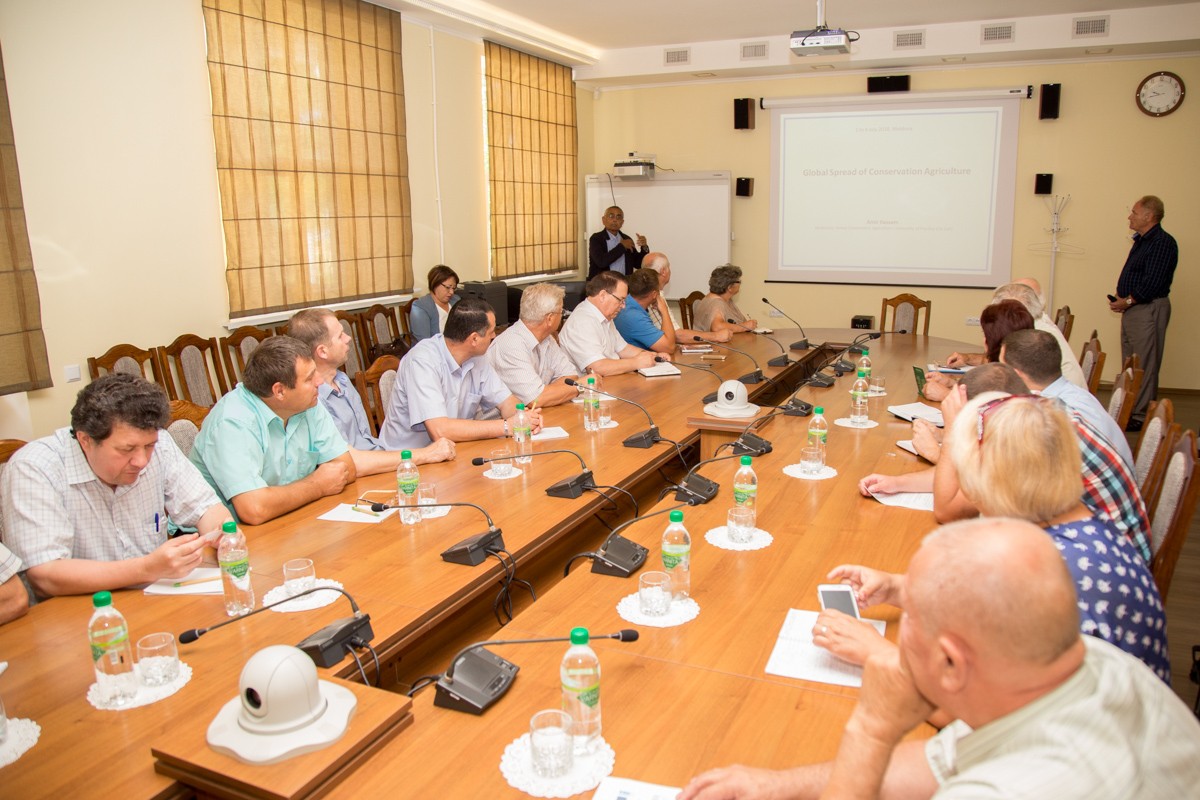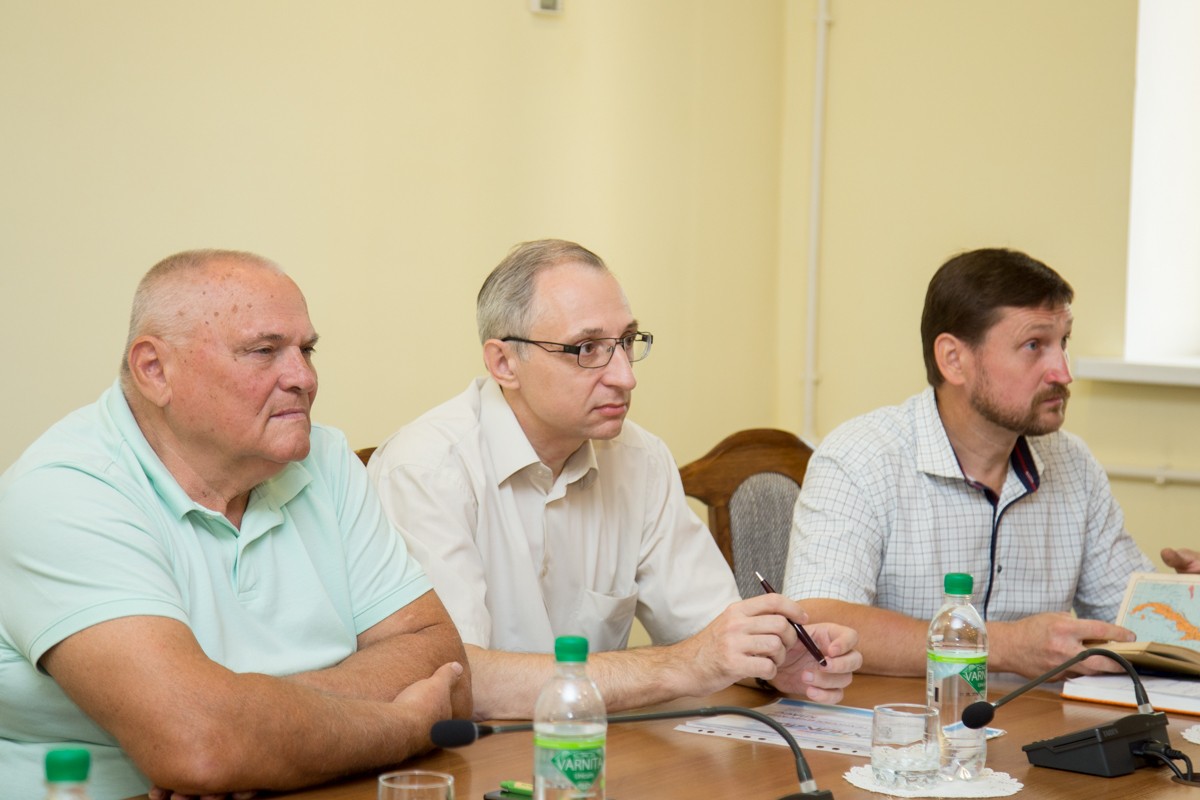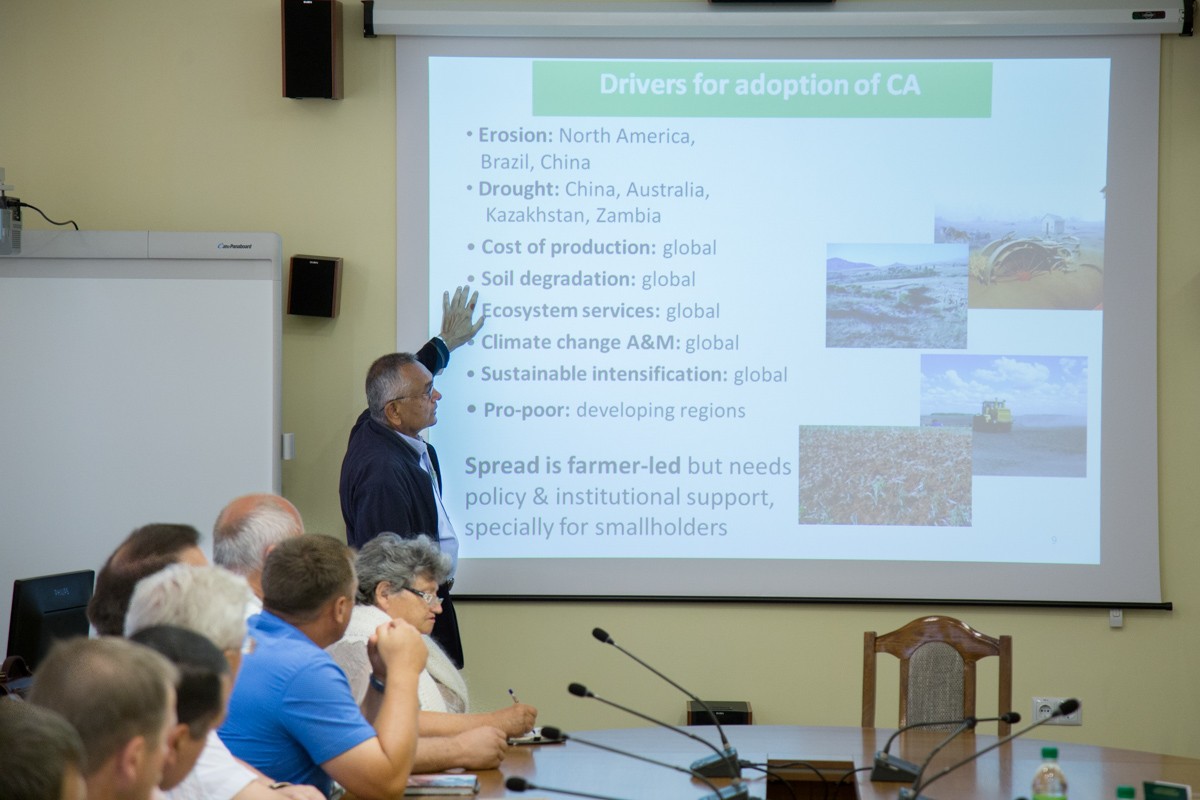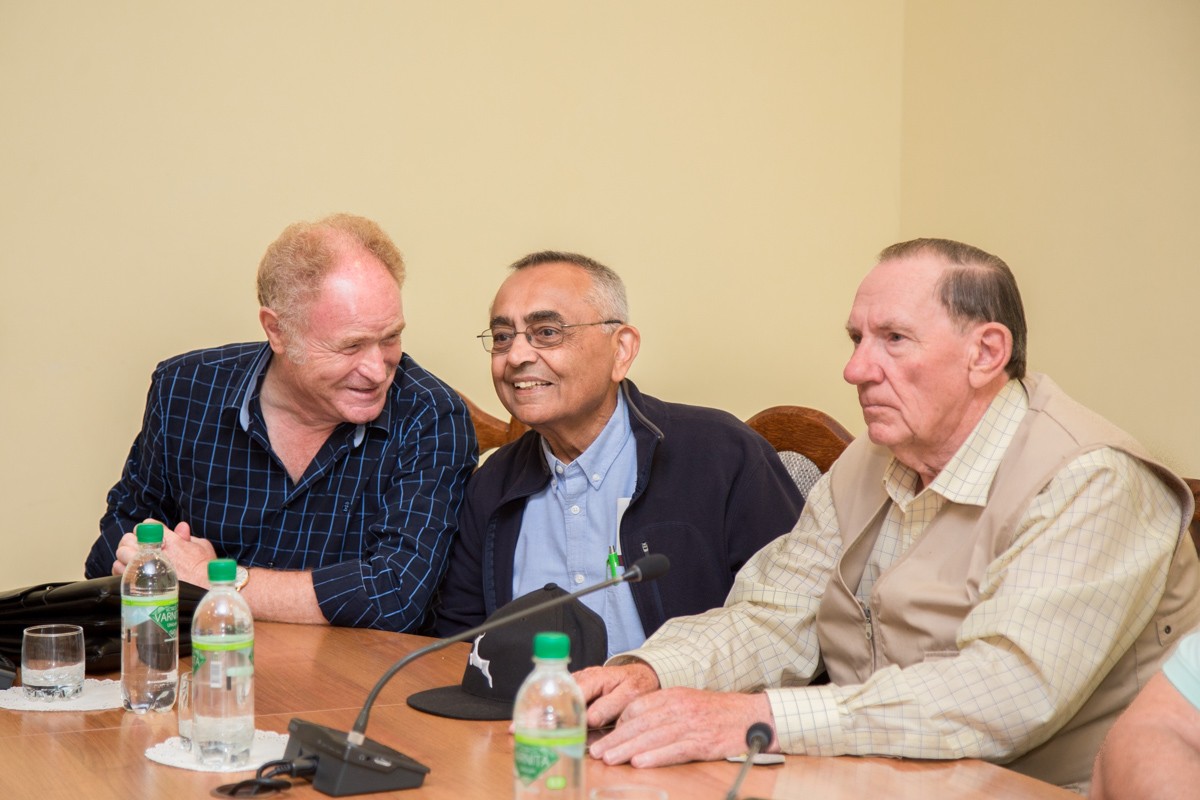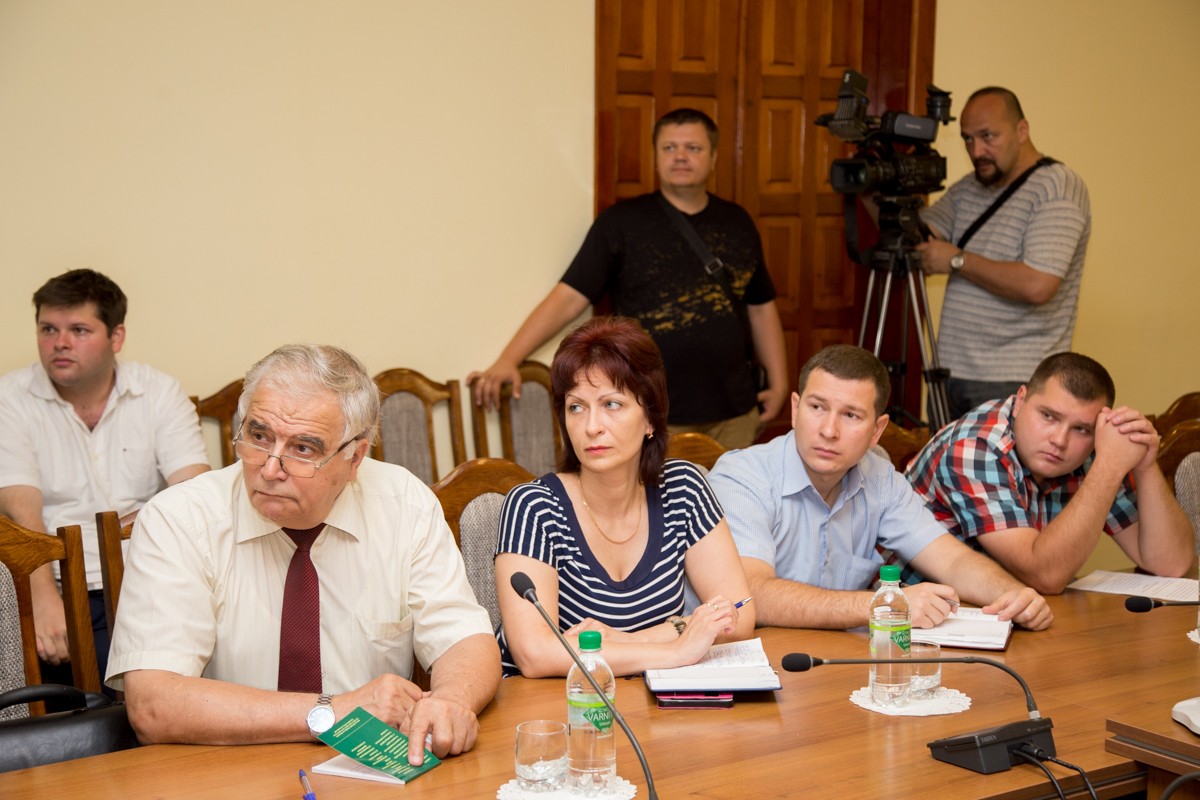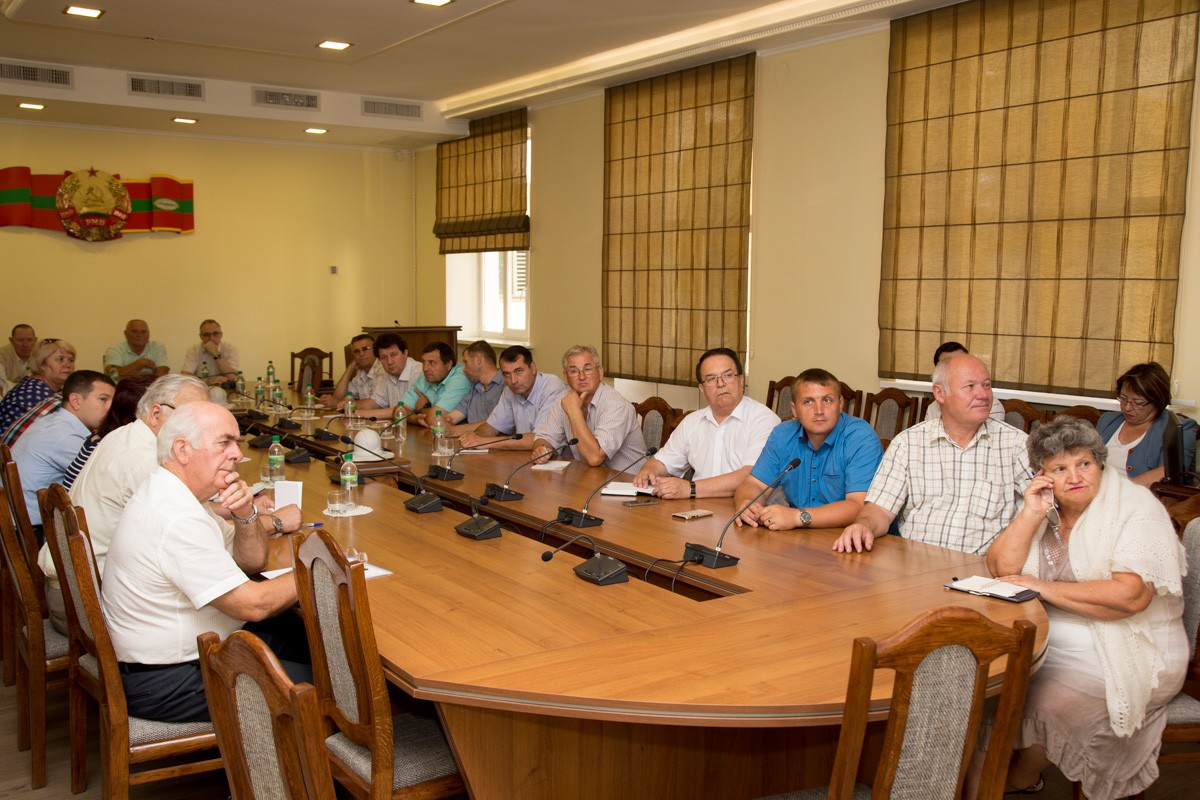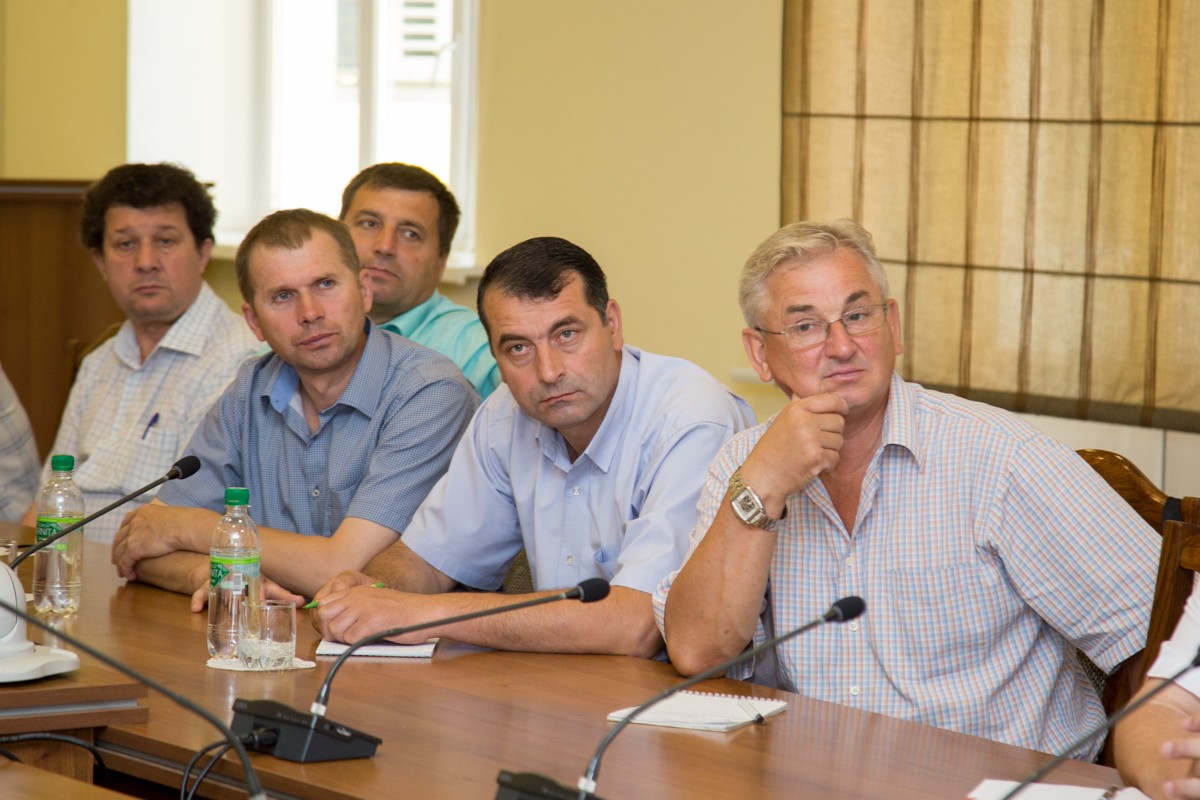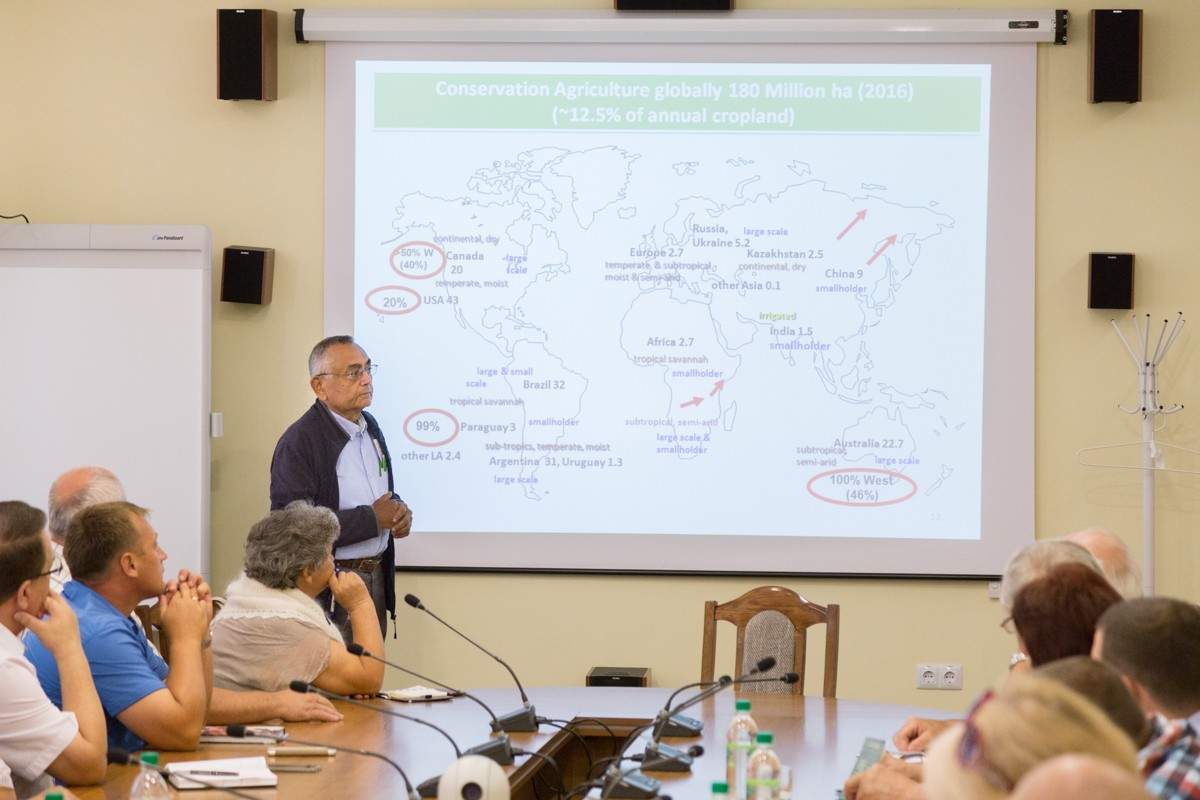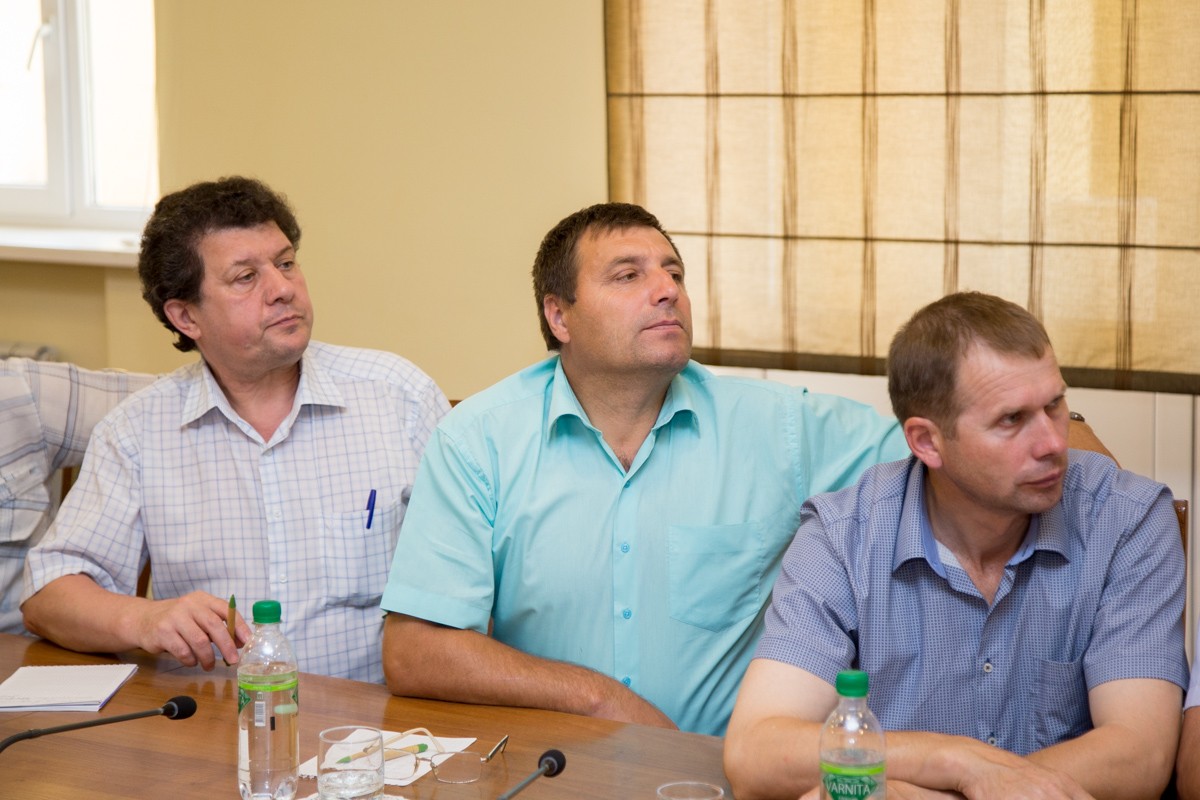Tiraspol, 4 July. /Novosti Pridnestrovya/. Pridnestrovian State University was the host of a meeting with the British guests - representatives of the Association of Conservative (Organic) Agriculture of Great Britain, Professor Amir Kassam and farmer Tony Reynold. The meeting was a continuation of a conversation held a day before, but this time its attendees were not farmers and agriculture ministry employees but representatives of the country's scientific community from the Pridnestrovian Research Institute of Agriculture, relative departments of PSU, the Research Institute of Ecology and Natural Resources. The subject was the same - conservative agriculture. It has been talked about in Pridnestrovie for a long time, including at a number of workshops and seminars. The reason is simple - the depletion of the soil, its erosion, lower yields (with increasing investment in cultivating the land), droughts and other factors force farmers to think about the ways of restoring the land's fertility.
"We invited the scientific community to update our knowledge and have a look at the problem from a new angle. [...] Both Western and Russian scientists are gradually coming to the conclusion that the main driving force is the presence of humus in the soil and its reproduction. These ideas have acclaimed by land users; we are beginning the transition to classical technology, which is associated not only with zero processing but primarily with the inclusion of such legumes as peas, alfalfa, vetch, etc. into the crop rotation," said head of the department of science and information of the Ministry of Agriculture and Natural Resources Fedot Tsybulsky in an interview.
The British guests noted that farmers from other countries were gradually coming to the same conclusions. Conservative farming (including the use of the "no-till" technology, the so-called zero-tillage) is already used on 180 million hectares of farmland, which is about 13% of all arable land in the world. And, interestingly, this thinking is spreading both in developing and in quite prosperous countries, both in small and large farms. This helps to saturate the soil with the necessary organic matter, to make it retain more moisture, to obtain greater yields, and in general to restore fertility.
The seminar participants wondered if it was possible in modern conditions where all ecosystems were broken, where the same crops are cultivated, and soils become so poor that they must be constantly supported by chemicals. Adherents of the ideas of conservative or organic agriculture are sure that with a more gentle approach the soil can be restored, not completely of course. As an example, Tony Reynold cited his farm where many such methods are used.
By the way, Pridnestrovian farmers gradually master this approach as well. It is used approximately on 30,000 hectares with the general territory of arable land of 272,000 hectares. Adherents of conservative agriculture are sure that this is the only true way, and sooner or later the rest of the agrarians will follow it.
"Many people I have met in Pridnestrovie over these two days - farmers, scientists, officials - asked the same questions that are asked both in Europe and outside it. People face similar problems - high production costs, land degradation, and here people are even more concerned about them - they are looking for solutions. When we were making our presentations, many noted that this is the way they should go. And I am sure that scientific research on this subject will be carried out here; special training will be provided, and a more sustainable system of agriculture will be adopted," said Amir Kassam.

